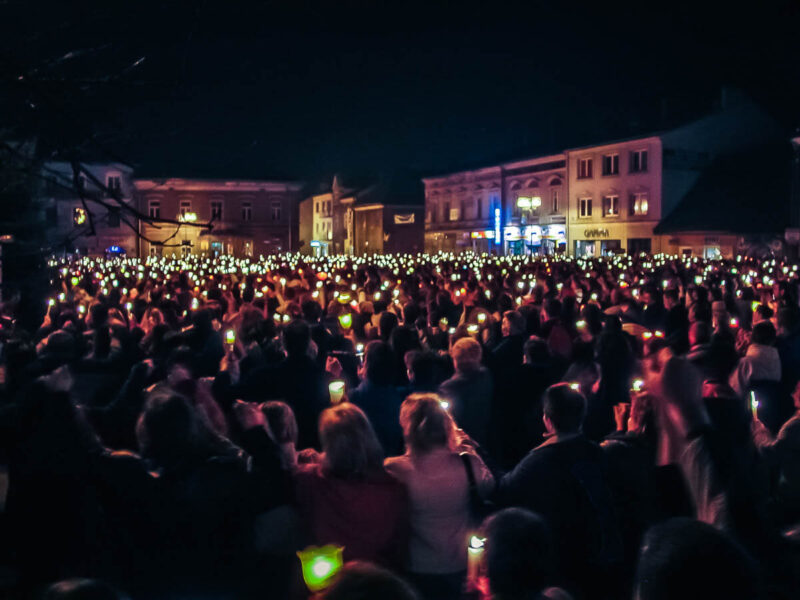A ride through the village yesterday afternoon revealed that almost all houses have a picture of John Paul II hanging in a window, often with a black ribbon across the lower right corner. School has been called off for Friday so students can watch the funeral. Students Tuesday began coming to school in suits and dresses. On Wednesday most of the students were wearing semi-formal wear. Meetings are being held every night in town squares.
In Lipnica, there’s a daily eight o’clock mass for the pope. It’s followed by “Apel Jasnogorski,” which a special meeting where participants sing the song sung every evening at nine at Czestochowa, home of the Black Madonna — the most revered holy object in Poland.
In nearby Nowy Targ, there are daily outdoor masses at the airport as well as nightly vigils in the rynek (town square).

Crime and accident rates have fallen, police report. Rival soccer hooligans have been holding common masses. John Paul, even in death, is bringing out the best in everyone, even people waiting in line to see his body.
Police made a few exceptions. A Mexican family with two weeping teenagers and a small child was allowed to cross through the barricade and over the bridge to join the end of the line. Rather than protest, the crowd applauded (CBC)
And it’s not just the “little people” who are getting caught up in it.
Back at the Vatican, workers have set up hundreds of seats in St. Peter’s Square for the crowd of expected kings, queens, presidents, prime ministers and religious leaders – many of them political foes united in a funeral (Reuters)
I read yesterday that Bush is going to have to sit very close to Mohammad Khatami, the president of Iran — one third of his “axis of evil.” Perhaps that would do them good. Better would be for the two of them to have to wait in line together for twenty-four hours like the rest of the people did — perhaps in sub-zero weather, with one blanket.
